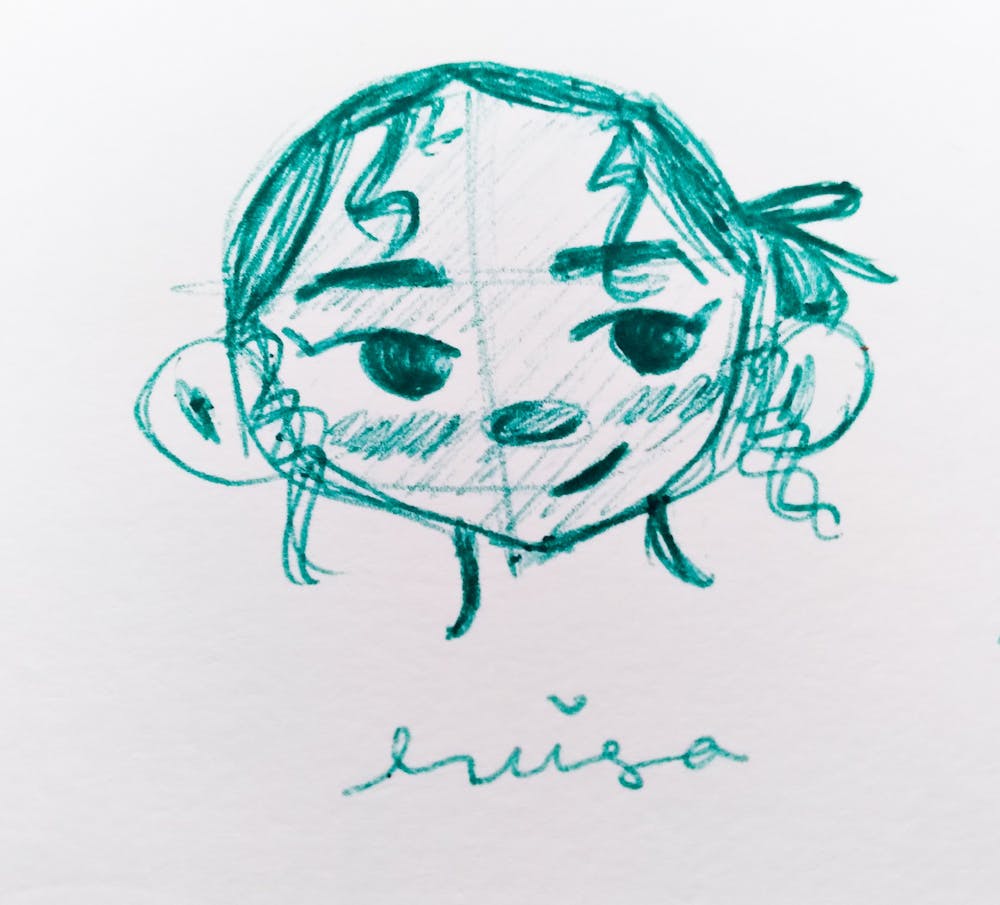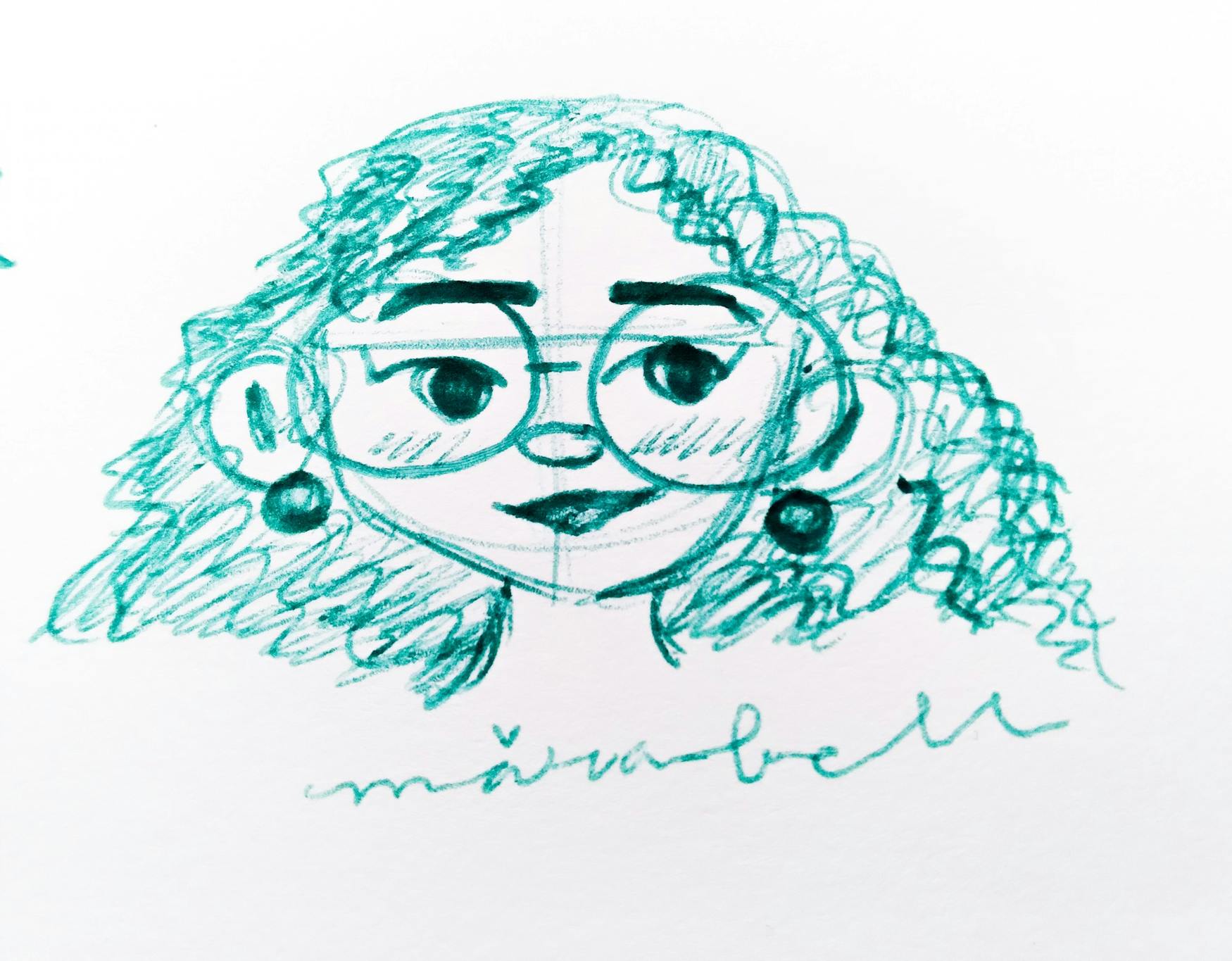We don’t talk about Bruno, but can we talk about ‘Encanto’?
**Spoilers ahead for those who have not seen the film. Song references are in parentheticals.**
A fair number of us know and remember well the power of Disney magic from pixie dust to “Pocahontas.” I grew up with classics like “Beauty and The Beast,” “The Lion King,” and “Bambi,” but as a child I did not have a lot of interest in watching Disney, which is quite a shock considering how obsessed I am now. I rarely watched Disney after their early films. Regardless, when “Encanto” came out, the world was obsessed (if you have met me, I know I am not alone in my obsessions).

Luisa: Luisa Madrigal, voiced by Jessica Darrow, is Mirabel’s second eldest sister.
When the trailer first came out I knew I was going to like it — I promise you it is not because I love “Hamilton,” “Moana,” and “In the Heights.” The first reason was the main character had such a unique name, Mirabel: a name that my sister happens to share. Secondly, the animation at Disney is so stunning (I can see peach fuzz on Luisa’s neck), and the emotions we can see in each character gives them a layer of realism that has not necessarily been present in other movies. Last but not least, the story line is so closely connected to family and does not follow the typical Disney story arc. As we have seen with Disney’s last few films, the main character has on inner conflict (with ice powers, a love for water, or an obsession with dragons) and focuses less on a love interest.
“Encanto” is no different. I, a theater kid and an art nerd, thoroughly enjoyed every aspect of the film. The story follows a multigenerational family called the Madrigals, where all the family members have magical gifts that allow them to help their community by way of a magical candle.
Unfortunately, Mirabel is the “only Madrigal kid with no gift,” though I would argue she does have a gift — we’ll get back to that later. The movie is set near the 20th century in Colombia after a war, and the encanto, Spanish for “charmed or enchanted,” is a sacred and protected land between two mountains, which Abuela describes as “a refuge” and “a place of wonder.” The family consists of Alma, also known as “Abuela,” who has triplets: Julieta, whose power is cooking that heals, Bruno, who can see into the future, and Pepa, who can control the weather. Julieta married Agistín, who has no gift. Their daughters are Mirabel, who seemingly has no gift, Luisa, who has super strength, and Isabela, who has phytokinesis: the ability to control plants. Pepa married Félix, and their children are Dolores, who has super hearing, Camilo, who can shapeshift, and their youngest Antonio, who gets his zoolingualism gift during the film, which allows him the ability to communicate with animals. The song, “The Family Madrigal,” does a better job describing the family and their talents.

DOLORES: The cousin of Mirabel gifted with the power of super hearing is played by Reggaeton singer Adassa.
Over the course of the film, the magic of the encanto starts to falter and Abuela blames Mirabel, who is not at fault. Mirabel resolves to fix the magic on her own. She talks to her siblings only to discover that everyone is equally as miserable even though they have powers — Luisa is on the verge of breaking from too much pressure, and Isabela fears she’ll never be perfect enough. Mirabel eventually asks the big question ‘What’s up with Bruno?’, leading to the song “We Don’t Talk About Bruno,” which is at the top of the U.S. music charts. She finally finds him, only to discover he has been hiding in the walls of the house the entire time. She questions Bruno and he explains he left because his visions already led to him being ostracized and he wanted to protect her since the last vision showed her in the middle of the Casita, the house’s name falling apart. He couldn’t tell if she was causing the cracks or not because his vision was out of order.
After much convincing from Mirabel and extra help from Antonio, Bruno agrees to have another vision where he sees that Mirabel must make amends with her sister Isabela and hug. She seems irritated at first, exclaiming “Issa-bela!”, but accepts nonetheless. She tries to talk to Isabela and quickly get to the hug, but Isabela is furious that she ruined her engagement. Nonetheless, she realizes that she never wanted to get married in the first place. After Isabela confesses her disdain for perfection both sisters see casita healing itself. Immediately after, they rebuild a strong sisterly camaraderie (in song form, of course; “What Else Can I Do?”) between Mirabel and Isabela.
Immediately after, Abuela and Mirabel get into a fight about who is really at fault. Mirabel defends herself, standing up to Abuela for the first time. But Abuela is persistent and blames Luisa for losing her strength, Isabela’s ruined proposal and Casita’s cracks. Abuela is blinded by everyone’s gifts and feels that everything must be perfect. During their argument, the cracks reappear and grow larger. It seems that Abuela is never satisfied, and the house eventually collapses. Everyone is trying to escape the house, while Mirabel is trying to save the candle. She grabs the candle, only for it to go out despite her attempts to save the flame. Casita protects her as the rest of the house crumbles. Mirabel quietly leaves and finds solace at a river, where she and Abuelatalk about the past and why she felt the need for everyone to be perfect. They embrace as well and she realizes that the gift is not the candle or their talent, but family.
“Encanto” breaks so many stereotypes. The level of diversity is empowering to see on screen, especially in animated form. The casting choices included many newcomers in the field of acting and a talented group that allows for authentic cultural representation. Within the animation, a broad range of diversity is showcased from skin tone to different body types.
In the last few scenes, we see the Madrigal family and their community help them rebuild their home and their relationships. Most importantly, when Mirabel touches the door handle for the Madrigal house, not only is everything restored, but she is officially given her gift: she can control the house and will follow in Abuela’s footsteps. This is just a theory of course, but she is the only one who openly communicates with Casita, and it seems she would be the next leader of her family. After everyone enters Casita, each character lets go of the expectations of perfection and is comfortable being their true selves. Luisa takes a much needed break, Pepa happily dances under her hail flurries, and Isabela cheerfully uses her power to make plants of all varieties. In the very last shot we see the perfectly imperfect family all together and genuinely happy.
Overall the film presents some important themes such as family, trauma, and the importance of love from family, with a specific focus on exploring different family dynamics rather than focusing on just one type of love. The film simply tells a story about a family in need of spiritual healing. “Encanto,” like the Madrigals, is a sweet, charming, and magical experience.



Please note All comments are eligible for publication in The Justice.